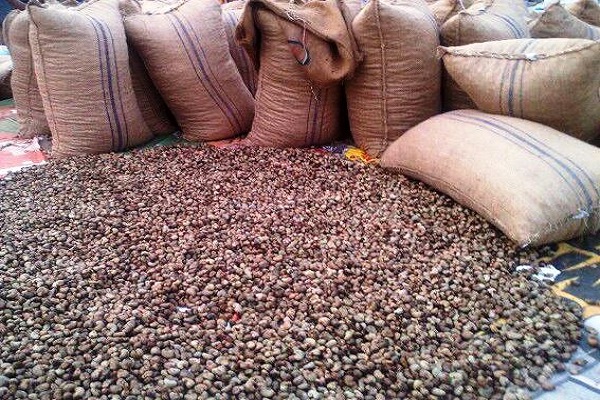ACA calls for clear and harmonised policy guidelines for raw cashew exports from Africa
ACA calls for clear and harmonised policy guidelines for raw cashew exports from Africa
The African Cashew Alliance (ACA) has called on governments to develop clear and comprehensive policy guidelines for the export of Raw Cashew Nuts (RCN) from Africa.
This call was made by the President of the Board of Directors of the ACA, Mr. Ibrahim Sanfo, during his address at the official opening of the 7th Council of Ministers Meeting of the Consultative International Cashew Council (CICC) in Conakry, Guinea on Thursday, April 24, 2025.
The lack of such a policy, Mr. Sanfo asserts, has led to inconsistent practices across the continent, including sudden bans and suspensions of RCN exports by cashew-producing countries in Africa, sometimes enacted mid-season. While these abrupt decisions are mostly intended to secure RCN for local processors, they have had unintended negative consequences, including disrupting market stability and discouraging international investment in the cashew industry.
“In recent years, we have witnessed bans and suspensions on the export of raw cashew nuts in several countries, sometimes enacted during the season. This creates uncertainty in the market,” he highlighted.
According to Mr. Sanfo, adopting a clear and coordinated RCN exports policy across CICC member countries “will greatly help to eliminate these recurring challenges” that usually arise from such bans and suspensions. It will also promote a sustainable investment environment for both the trade and local processing sectors.
He called on the Council of Ministers, the highest decision-making body of the CICC – an intergovernmental organization promoting cashew value chains – to take decisive action in addressing the existing policy gaps in the cashew industry in Africa.
“One of the core mandates of the CICC is policy harmonization. We urge the Council of Ministers to take bold and coordinated action in this regard,” he stressed.
Reaffirming the ACA’s commitment to the CICC, Mr. Sanfo assured the Alliance’s readiness to provide the technical support required to develop a robust policy framework that protects the interests of local stakeholders while attracting sustainable international investment.
Africa currently produces over 57% of the world's raw cashew nuts, with Côte d’Ivoire being the largest producer globally. However, less than 15% of this output is processed locally, due to challenges such as limited access to reliable funding for local processors and challenges in purchasing raw materials. To prioritise local processing, several African countries impose bans or temporary suspensions of RCN exports. Since 2024, Benin has imposed a complete ban, while countries like Côte d’Ivoire and Burkina Faso have introduced some temporary suspensions on exports of RCN.
Mr. Sanfo also took the opportunity to commend cashew-producing countries for the “admirable strides” made towards sustainable growth in cashew production. He, however, emphasized that a lot more can be accomplished together as a Continent through the CICC. He urged member countries to “actively work to harmonise national efforts and policies to unlock the full potential of the African cashew industry through regional integration”.
Established in 2016 through the collective efforts of the ACA and development partners in the cashew industry, the CICC currently has 11 member countries: Benin, Burkina Faso, Cameroon, Côte d'Ivoire, Ghana, Guinea, Guinea-Bissau, Mali, Nigeria, Senegal, and Togo.
Looking ahead, Mr Sanfo highlighted the need for strategic investment in the cashew industry. He announced that the 19th ACA Annual Cashew Conference and Expo, themed “Unlocking Cashew Investment Opportunities for Sustainable Economic Growth”, will spotlight key investment areas necessary for sustainable industry growth. The Conference will take place in Dar es Salaam, Tanzania from the 18th to 22nd November 2025 and is expected to host over 500 cashew stakeholders from across the globe.




